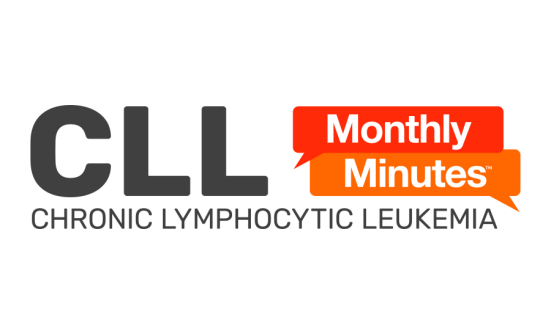March 11, 2021, marked 1 full year since the World Health Organization officially labeled the COVID-19 outbreak a global pandemic.1 During this year of isolation and uncertainty, it has been common for individuals to experience feelings of anxiety, stress, fear, sadness, or grief.2 Fortunately, since December 2020, 3 COVID-19 vaccines have been approved for use in the United States, and, at the time of this writing, a fourth one is preparing for regulatory submission in the coming weeks.2,3
Studies have suggested that patients with chronic lymphocytic leukemia (CLL) are at increased risk of developing more serious illness from the virus that causes COVID-19.2,4 Nevertheless, in a recent survey of 6500 blood cancer patients and survivors, only half said they were very likely to get a COVID-19 vaccine, whereas 1 in 3 were unlikely or unsure about it.2 Given the risks involved when patients contract COVID-19, patient advocacy groups including the Leukemia & Lymphoma Society and the Lymphoma Research Foundation suggest that all patients discuss vaccination with their healthcare team to make an informed choice when a vaccine becomes available to them.2,5
Safety is one concern that everyone shares about the COVID-19 vaccination. All 3 of the approved vaccines were shown to have a favorable safety profile in clinical trials, and as of March 22, 2021, nearly 1 in 3 American adults, or 81 million people, had received at least 1 vaccine dose.2,6 Although COVID-19 vaccine trials did not include many patients with cancer, there is no reason to believe that they will be any less safe in patients with blood cancers like CLL.2,5
Receiving ongoing cancer treatment may affect how well a patient’s body responds to the vaccine.2 Specifically, some treatments may suppress a patient’s immune system, making them less likely to produce the same level of immune response as those whose immune systems are fully functioning.2 That said, vaccination of individuals who are receiving treatment or are immunocompromised may still have some protective effect against COVID-19, so patients should speak with their doctor to develop their own personalized vaccination strategy.2
Prior allergic reactions to vaccines or injectables are another common concern when considering a COVID-19 vaccine. Current guidance from the Centers for Disease Control and Prevention recommends that no one receive a COVID-19 vaccine if they have had a previous severe allergic reaction, such as anaphylaxis, to any component of the vaccine they are offered.2,5
Overall, COVID-19 vaccinations have proved to have a good safety profile and to be highly effective at preventing severe disease, hospitalization, and death from COVID-19.2 Patients with CLL should share any concerns they have about vaccination with their care team, and remember that even after vaccination, wearing masks, social distancing, and frequent handwashing are key to protecting themselves from exposure to COVID-19.2,5
References
- World Health Organization (WHO). WHO Director-General’s opening remarks at the media briefing on COVID-19 - 11 March 2020. www.who.int/director-general/speeches/detail/who-director-general-s-opening-remarks-at-the-media-briefing-on-covid-19---11-march-2020. Accessed March 23, 2021.
- Leukemia & Lymphoma Society. COVID-19 vaccines FAQ for patients and caregivers. Updated March 16, 2021. www.lls.org/covid-19-vaccines-faq. Accessed March 23, 2021.
- AstraZeneca. AZD1222 US phase III trial met primary efficacy endpoint in preventing COVID-19 at interim analysis. Published March 22, 2021. www.astrazeneca.com/media-centre/press-releases/2021/astrazeneca-us-vaccine-trial-met-primary-endpoint.html. Accessed March 23, 2021.
- Roeker LE, Scarfo L, Chatzikonstantinou T, et al. Worldwide examination of patients with CLL hospitalized for COVID-19. Presented at the 62nd American Society for Hematology Annual Meeting and Exposition; December 5, 2020. Abstract 1590.
- Musumeci N. Ask the Doctor: Should CLL patients receive the COVID vaccine while they are on treatment with BTK inhibitors considering that they have to stay on them indefinitely? Published January 20, 2021. https://lymphoma.org/newsarchive/ask-the-doctor-should-cll-patients-receive-the-covid-vaccine-while-they-are-on-treatment-with-btk-inhibitors-considering-that-they-have-to-stay-on-them-indefinitely. Accessed March 23, 2021.
- White House. Press briefing by White House COVID-19 response team and public health officials. Published March 22, 2021. www.whitehouse.gov/briefing-room/press-briefings/2021/03/22/press-briefing-by-white-house-covid-19-response-team-and-public-health-officials-18. Accessed March 23, 2021.















